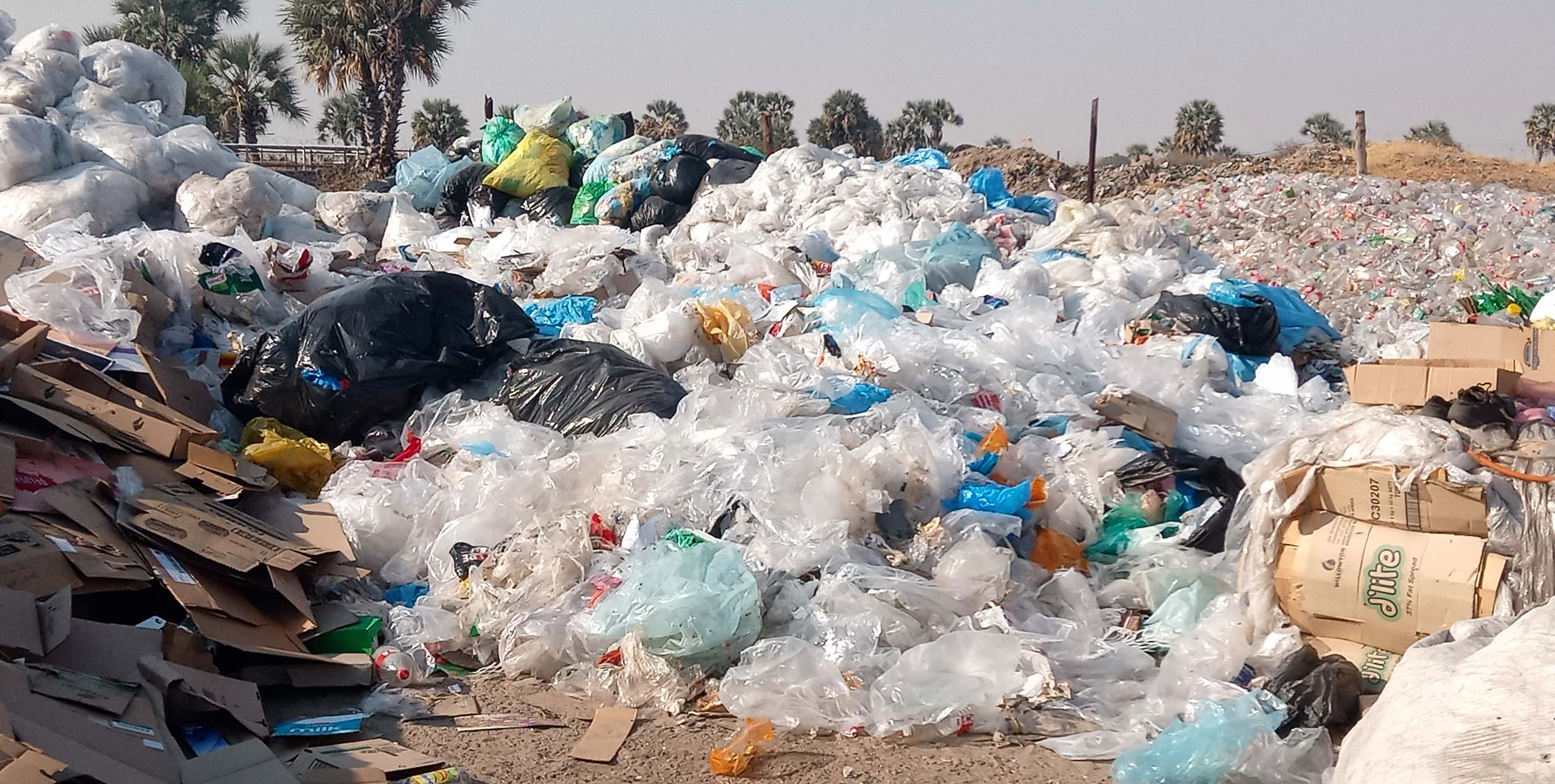
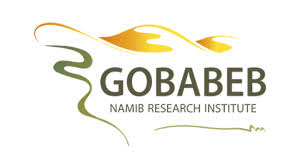
Is the plastic bag levy reducing single-use plastic waste in Namibia?
Gobabeb-Namib Research Institute
16th November 2020
It has been a year since the plastic bag levy was introduced in Namibia. Have you ever wondered why the plastic bag levy was introduced? Or whether it has effectively reduced plastic waste in the country?
On the 2nd August 2019, the Namibian government introduced a plastic bag levy, whereby shops were charged 50 cents per plastic shopping bag. To recover the money they are charged, many shops started charging 50 cents or more for every plastic bag given to the customers. Nonetheless, some shops still give plastic bags away for free. The purpose of the levy is to reduce and discourage the use of plastic bags, thereby controlling plastic pollution. The money collected from the levy goes to the Environmental Investment Fund (EIF) and is used to improve waste management. There is, however, a lack of information on the effectiveness of the levy and how consumers have reacted to its implementation.
A team of 12 graduates, under the supervision of the Gobabeb - Namib Research Institute, and supported by the Ministry of Environment, Forestry and Tourism (MEFT) as well as the GIZ-Biodiversity Management and Climate Change (BMCC II) Project, therefore observed plastic bag use at shops and interviewed people about their views on the plastic bag levy and their disposal of plastics. The target towns were Windhoek, Walvis Bay, Keetmanshoop, Ondangwa and Katima Mulilo.
This consumer survey is part of a broader project evaluating the plastic bag levy that will include consultation with manufacturers, policy-makers and retailers. Gobabeb is furthermore part of an international research consortium, led by the University of Plymouth in the United Kingdom that aims to understand and reduce the impacts of plastics in desert landscapes.
The researchers specifically interviewed consumers on their knowledge, attitudes and perceptions of single-use plastics at shopping malls, open markets, taxi ranks, parks and in front of shops. To supplement these answers, they observed exchanges between customers and cashiers at several types of shops and at different times of day. We were particularly interested in the effect the cashiers had on the customers' decision to use plastic bags. A total number of 3,751 questionnaires and 3,852 observations were completed across the five towns. Here are some of our preliminary findings and recommendations on the way forward.
What do people think about the levy and potential plastic bag ban?
The majority (88%) of people interviewed knew about the plastic bag levy, however, there was less certainty about why it was introduced. Only 45% of respondents correctly said that the purpose of the levy is to reduce use of plastic bags, while the rest thought the money is being collected for other reasons (Figure 1).
The Namibian government wants to ban plastic bag use by 2022, but our results indicate that more public outreach is required to ensure that people understand the reasoning behind a ban. Only half of the respondents (51%) agreed that the levy should continue, saying they could see reduction in plastic litter in their area. The rest of the respondents thought that the levy is not effective and that setting a price on plastic bags is just a means for the shops or the government to make money. When asked if all single-use plastic shopping bags should be banned, some respondents asked if reusable cotton bags would be given out instead, while traders argued that they would be left with nothing to convey their goods to open markets.
Why do people buy plastic bags?
Our interviews and observations revealed that most people (67 and 76%, respectively) prefer single-use plastic bags to re-usable bags, paper bags or boxes. Younger people (18-35 years) were more likely to use plastic bags than those older than 55 years, who usually brought their own reusable bags. Cashiers and packers play a role in affecting consumer behaviour – the use of plastic bags dropped by 11% when the customer was asked if they wanted a plastic bag (73% said yes) than when they were not (84% bought bags without being asked).
Many customers (27%) were observed buying plastic bags to avoid mixing different types of goods such as food items and cosmetics or frozen and dry food (Figure 2). This tendency was confirmed by 62% of the questionnaire respondents who agreed that it is a problem to have cosmetics and food items in one plastic bag. Other concerning observations included customers buying bags for very few items, using a bag for goods already in carry bags (e.g. big bags of pasta with handles), doubling bags to carry heavy items, and buying a bag even though they already had one from another shop. Only a quarter of the customers packed the plastic bags to their full capacity.
What happens to plastic bags and other plastic waste?
Respondents indicated that they reuse their plastic bags when they get home. Many of those from the low-income, high-density settlements use plastic bags to make fire. Very few people said that they threw their plastic waste on the ground; most respondents used household bins and the municipality waste removal services.
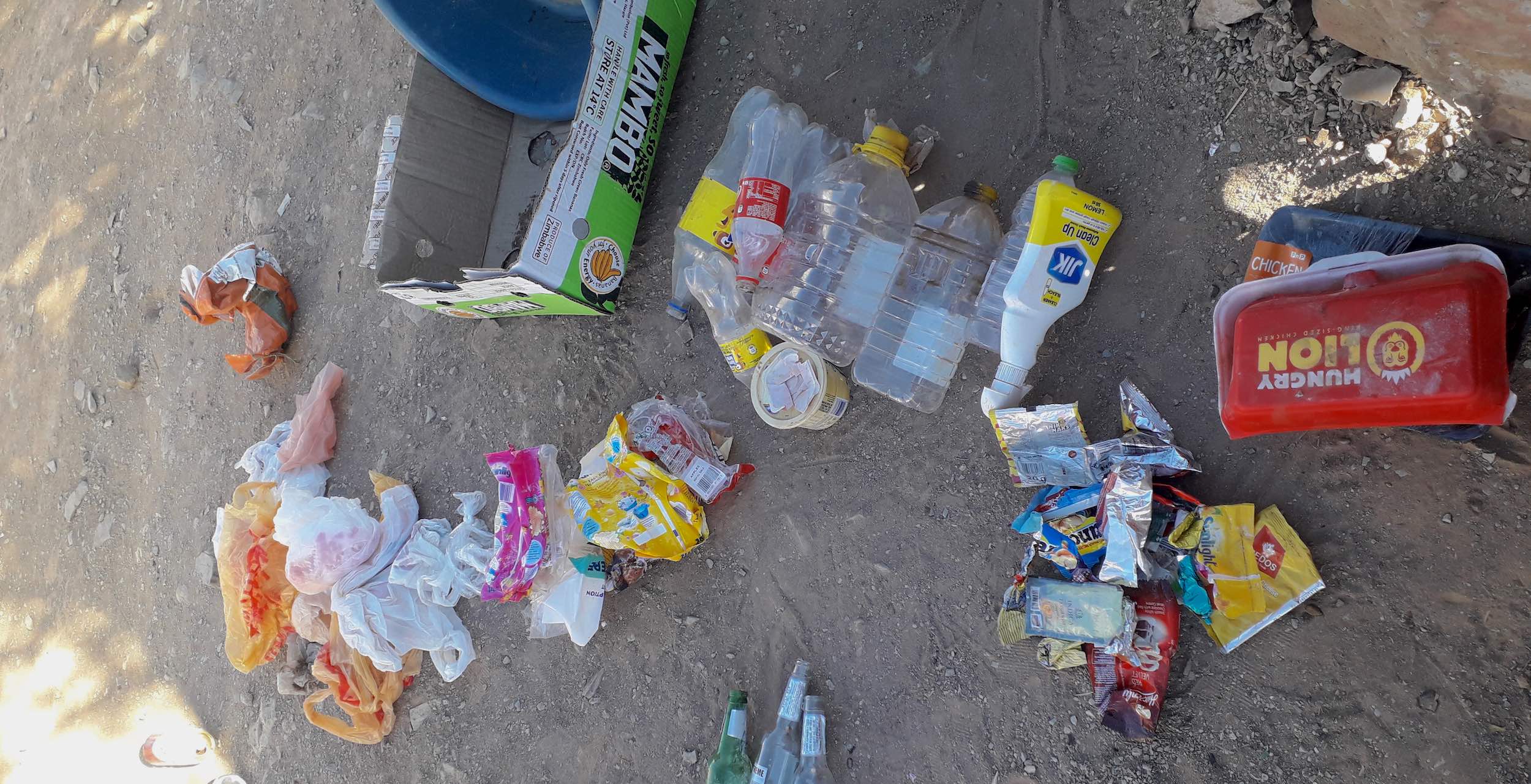
The researchers also collected waste from 34 houses for six consecutive weeks to determine what types of plastic waste an average household produces. The waste was categorised as glass, metal, or plastic. Plastic waste accounted for 83% of household waste and was divided into seven subcategories: plastic bags, plastic bottles, Styrofoam, other lidded containers (e.g. mayonnaise bottle), other single-use plastic (e.g. cutlery), other packaging (e.g. a bag of pasta) and other plastics (Figure 3). Only 22% of the plastic waste fell into the plastic bag category.
Conclusions and recommendations
The plastic bag levy has had mixed results and responses from consumers. While about half of the people interviewed knew why the levy was introduced and agreed that it helped reduce plastic waste, many others thought that it was simply a moneymaking scheme. Clearly, more needs to be done to educate the public on why the levy was introduced, and to prepare them for the intended plastic bag ban. Furthermore, noncompliance among shops with the current levy casts doubt on the level of compliance a complete ban would receive.
Our observations at shops revealed high numbers of people buying plastic bags, even when they were unnecessary. Behaviour changed little when cashiers or packers asked if the customer wanted a bag, indicating that even increased awareness that they are paying for a bag does little to deter customers from using them. Whilst older customers were more likely to bring reusable bags, it seems that many people still feel that plastic bags are necessary for certain purposes – especially for separating different types of goods. On the positive side, most people claimed to reuse the bags they buy.
Finally, our household waste collection study revealed that most household waste is plastic, yet only 22% of that plastic comprises shopping bags. It is clear from this and other results that much more must be done to reduce single-use plastic waste among Namibian households. Information campaigns telling consumers why single-use plastic shopping bags are a problem should be combined with producing practical, environmentally friendly materials to replace plastic packaging.

For articles on similar topics, please click one of the following options:
If you enjoyed this page, then you might also like:
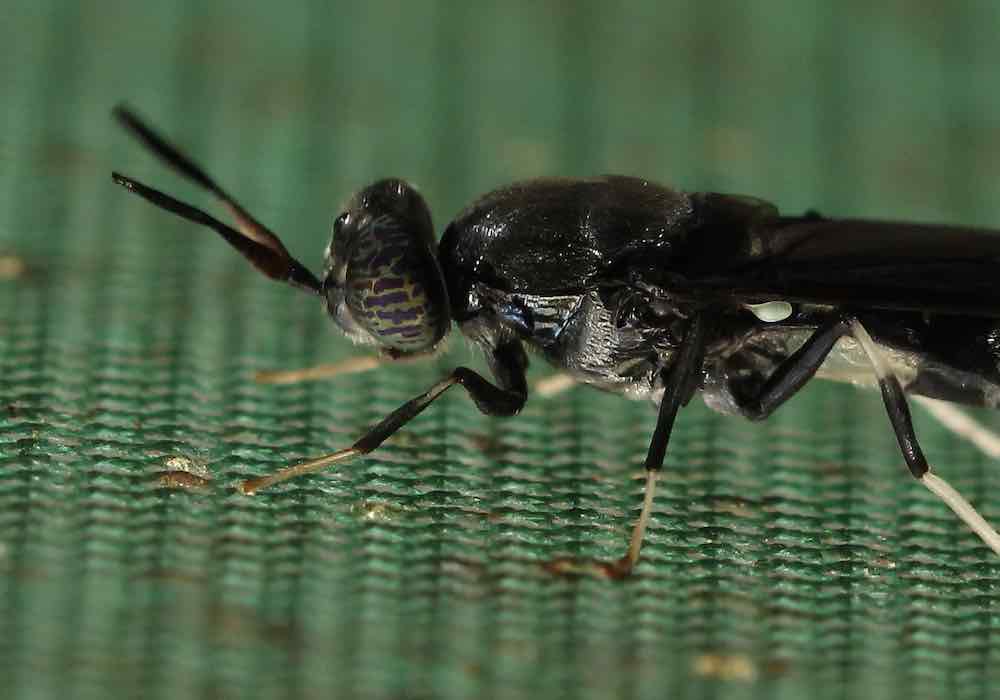
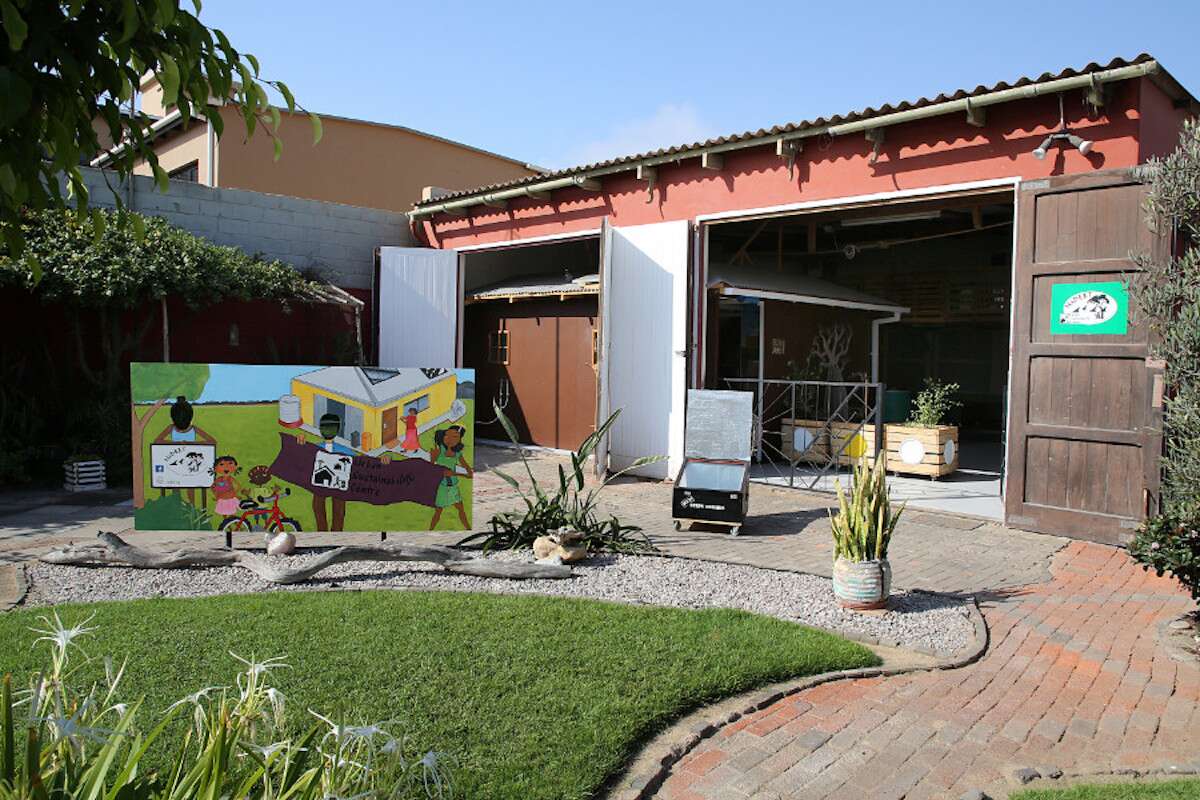
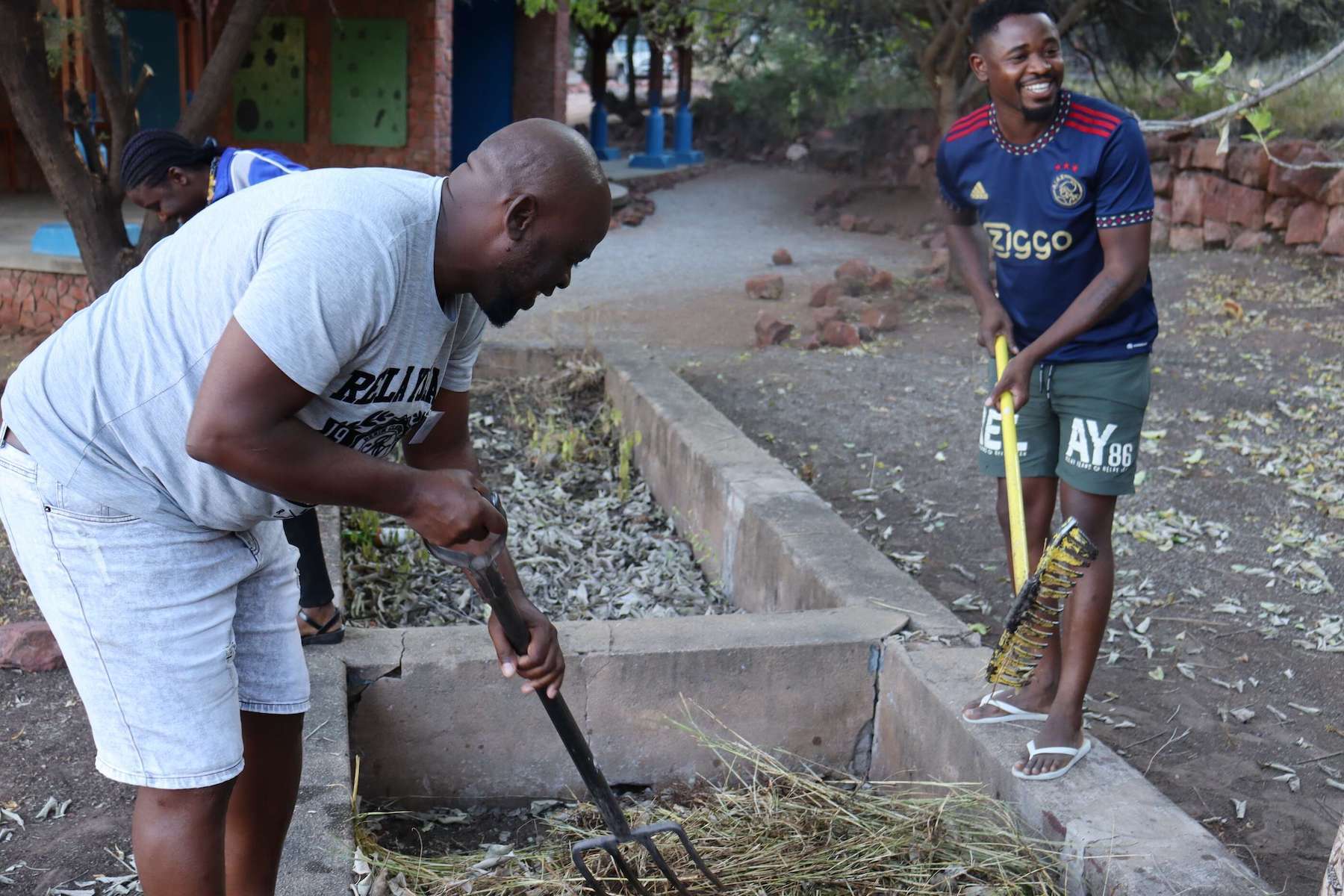

Gobabeb - Namib Research Institute previously known as Gobabeb Research and Training Centre has been conducting research in all aspects of the desert environment for more than 50 years. Gobabeb's mission is to be a catalyst for gathering, understanding and sharing knowledge about the arid environment, especially the hyper-arid Namibia Desert. We are committed to skills development of emerging environmental specialists and decision-makers. Gobabeb is also part of an international research consortium, led by the University of Plymouth in the United Kingdom that aims to understand and reduce the impacts of plastics in desert landscapes.
https://gobabeb.orgGobabeb - Namib Research Institute previously known as Gobabeb Research and Training Centre has been conducting research in all aspects of the desert environment for more than 50 years. Gobabeb's mission is to be a catalyst for gathering, understanding and sharing knowledge about the arid environment, especially the hyper-arid Namibia Desert. We are committed to skills development of emerging environmental specialists and decision-makers. Gobabeb is also part of an international research consortium, led by the University of Plymouth in the United Kingdom that aims to understand and reduce the impacts of plastics in desert landscapes.
https://gobabeb.org
Ndapandula (Kapandu) Shihepo is a Training Coordinator / Student associate at Gobabeb - Namib Research Institute, and also the coordinator and mentor of the Research Methodology Internship programme that conducted the survey on plastic bag levy. She is interested in Environmental management and education.
Ndapandula (Kapandu) Shihepo is a Training Coordinator / Student associate at Gobabeb - Namib Research Institute, and also the coordinator and mentor of the Research Methodology Internship programme that conducted the survey on plastic bag levy. She is interested in Environmental management and education.
We use cookies to monitor site usage and to help improve it. See our Privacy Policy for details. By continuing to use the site, you acknowledge acceptance of our policy.